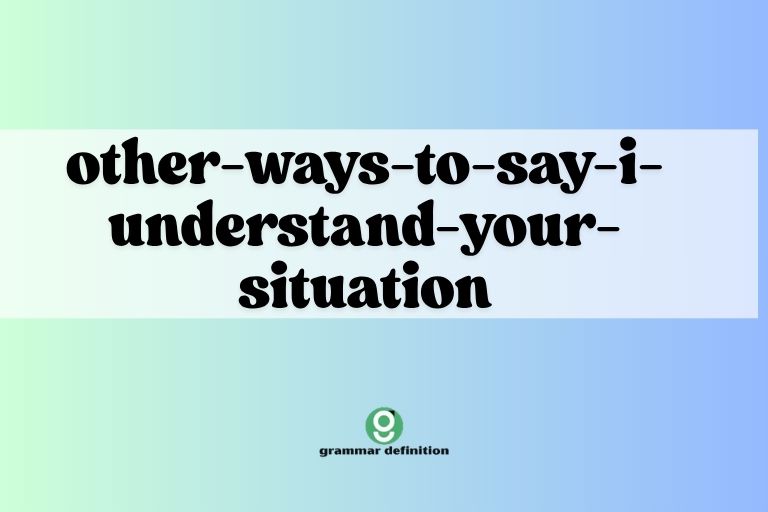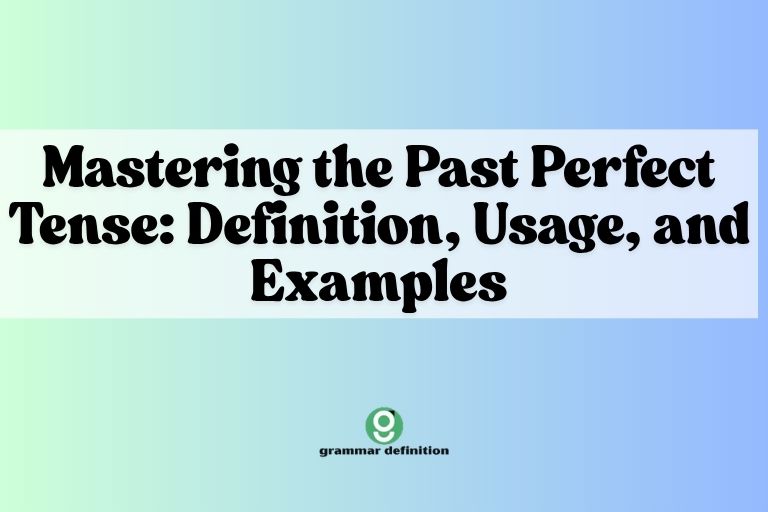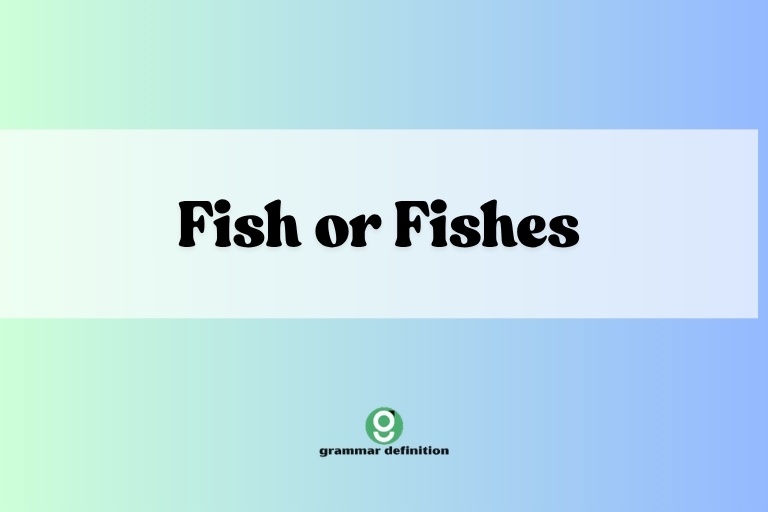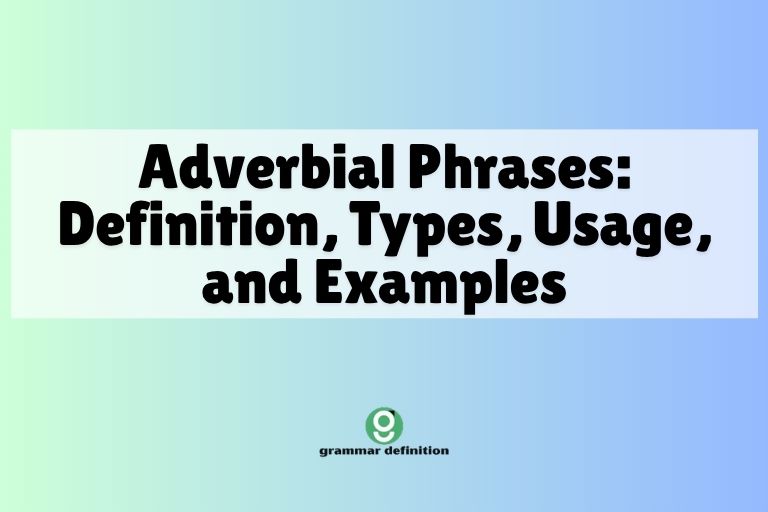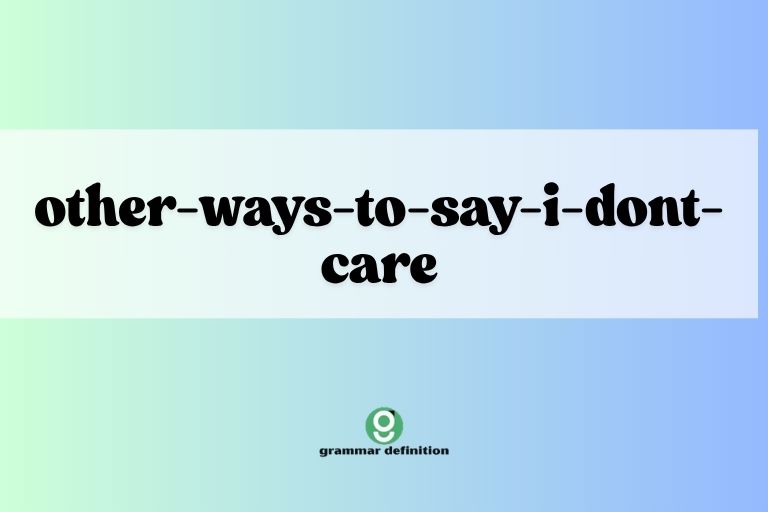Blew or Blown: Mastering the Past Tense of “Blow”

Understanding the correct past tense forms of irregular verbs like “blow” is crucial for clear and effective communication in English. Choosing between “blew” and “blown” can often be confusing, but mastering their usage significantly enhances your grammatical accuracy.
This article provides a comprehensive guide to the past tense forms of “blow,” explaining when to use “blew” and “blown” with detailed examples, practical exercises, and helpful tips. Whether you’re a student, a language learner, or simply someone looking to refine your English skills, this guide will equip you with the knowledge to confidently use these verb forms.
Table of Contents
- Introduction
- Definition of “Blow” and Its Forms
- Structural Breakdown: Simple Past vs. Past Participle
- Usage of “Blew” (Simple Past)
- Usage of “Blown” (Past Participle)
- Examples of “Blew”
- Examples of “Blown”
- Usage Rules and Guidelines
- Common Mistakes to Avoid
- Practice Exercises
- Advanced Topics: Idiomatic Expressions
- Frequently Asked Questions (FAQ)
- Conclusion
Definition of “Blow” and Its Forms
The verb “blow” is an irregular verb that describes the act of expelling air from the mouth or the movement of air. It has several other meanings, including to sound a horn, to spend money wastefully, or to ruin something.
Understanding its principal parts is essential for using it correctly in different tenses.
The principal parts of “blow” are:
- Base Form: blow
- Simple Past: blew
- Past Participle: blown
- Present Participle: blowing
The simple past form, “blew,” is used to describe an action that was completed in the past. The past participle form, “blown,” is used with auxiliary verbs like “have,” “has,” “had,” “is,” “are,” “was,” or “were” to form perfect tenses or passive voice constructions.
Structural Breakdown: Simple Past vs. Past Participle
To properly use “blew” and “blown,” it’s important to understand the structural differences between simple past and past participle forms.
Simple Past (“Blew”):
- Used to describe a completed action in the past.
- It stands alone as the main verb in a sentence.
- Example: The wind blew fiercely last night.
Past Participle (“Blown”):
- Requires an auxiliary verb (helping verb) such as “have,” “has,” “had,” “is,” “are,” “was,” or “were.”
- Used in perfect tenses (present perfect, past perfect, future perfect) and passive voice.
- Examples:
- The candles have been blown out. (Present Perfect Passive)
- The storm had blown down the old oak tree. (Past Perfect Active)
Usage of “Blew” (Simple Past)
“Blew” is the simple past tense form of “blow.” Use it to describe an action that happened and finished at a specific time in the past. It does not require a helping verb and acts as the main verb in the sentence.
Examples:
- The whistle blew loudly to signal the end of the game.
- She blew bubbles with her gum.
- He blew out all the candles on his birthday cake.
Usage of “Blown” (Past Participle)
“Blown” is the past participle of “blow.” It is used with auxiliary verbs to form perfect tenses (present perfect, past perfect, future perfect) and in passive voice constructions. It cannot stand alone as the main verb in a sentence.
Examples:
- The leaves have been blown off the trees. (Present Perfect Passive)
- By the time we arrived, the storm had blown over. (Past Perfect Active)
- The secret was blown when he accidentally revealed it. (Past Simple Passive – less common, but possible)
Examples of “Blew”
The following table provides a variety of sentences using “blew” in different contexts. Notice how “blew” is always the main verb and describes a completed action in the past.
| Sentence | Context |
|---|---|
| The wind blew the leaves across the yard. | Describing the movement of wind. |
| I blew on my hot coffee to cool it down. | Expelling air from the mouth. |
| The referee blew his whistle to start the game. | Sounding a whistle. |
| She blew a kiss to her grandmother. | Expressing affection. |
| He blew all his money on lottery tickets. | Spending money wastefully. |
| The scandal blew up and ruined his career. | Ruining something (figurative). |
| The bomber blew up the building. | Causing an explosion. |
| The detective blew his cover. | Revealing a secret identity. |
| She blew past the other runners to win the race. | Moving quickly past. |
| The musician blew a soulful melody on his saxophone. | Playing a musical instrument. |
| He blew his nose loudly into a tissue. | Clearing nasal passages. |
| The waves blew sea spray onto the deck of the ship. | Forcefully projecting liquid. |
| The company blew its earnings forecast, surprising investors. | Exceeding expectations significantly. |
| The athlete blew out his knee during the competition. | Injuring severely. |
| The actress blew her lines on opening night. | Forgetting or mis-speaking words. |
| The tire blew out on the highway. | Exploding due to pressure. |
| The politician blew a chance to gain public support. | Missing an opportunity. |
| The chef blew the soufflé by opening the oven too early. | Ruining a dish. |
| The spy blew his mission by making a careless mistake. | Sabotaging an operation. |
| The storm blew through the town, causing widespread damage. | Passing quickly with force. |
| The news blew my mind! | Surprising someone. |
| The hurricane blew down the old oak tree in the park. | Causing something to fall over. |
| The detective blew the case wide open with a new piece of evidence. | Solving or advancing a case. |
| The kids blew bubbles in the backyard on a sunny afternoon. | Creating bubbles with soap. |
| The train blew its horn as it approached the crossing. | Sounding a horn as a warning. |
| The coach blew his top when the team missed an easy shot. | Becoming very angry. |
| The wind blew so hard it almost blew my hat off. | Causing an object to be removed. |
| The company blew its marketing budget on a failed campaign. | Misspending money. |
| She blew up the balloon until it popped. | Inflating something until it bursts. |
| He blew his chances of getting the promotion when he missed the deadline. | Losing an opportunity. |
Examples of “Blown”
The following table illustrates the use of “blown” as a past participle with auxiliary verbs in various contexts. Note that “blown” always appears with a helping verb such as “have,” “has,” “had,” “is,” “are,” “was,” or “were.”
| Sentence | Tense/Voice |
|---|---|
| The candles have been blown out. | Present Perfect Passive |
| The storm had blown the roof off the house. | Past Perfect Active |
| The whistle was blown to signal the end of the game. | Past Simple Passive |
| The secret is blown now, so everyone knows. | Present Simple Passive |
| The glassblower has blown a beautiful vase. | Present Perfect Active |
| My cover was blown when someone recognized me. | Past Simple Passive |
| The opportunity has been blown due to his mistake. | Present Perfect Passive |
| The tire had blown before we reached the city. | Past Perfect Active |
| The leaves are blown around by the wind. | Present Simple Passive |
| The bridge had been blown up during the war. | Past Perfect Passive |
| The athlete’s knee was blown out during the game. | Past Simple Passive |
| The entire budget has been blown on unnecessary expenses. | Present Perfect Passive |
| The suspect’s alibi had been blown apart by the evidence. | Past Perfect Passive |
| The team’s chances of winning have been blown by the last-minute penalty. | Present Perfect Passive |
| The soufflé had been blown because the oven door was opened too early. | Past Perfect Passive |
| The spy’s mission was blown due to a critical error in communication. | Past Simple Passive |
| The company’s reputation has been blown by the recent scandal. | Present Perfect Passive |
| The building had been blown to pieces by the explosion. | Past Perfect Passive |
| The secret plan was blown when it was leaked to the press. | Past Simple Passive |
| His chance at the gold medal had been blown by the false start. | Past Perfect Passive |
| The balloons have been blown up for the party. | Present Perfect Passive |
| The game had been blown wide open by a series of turnovers. | Past Perfect Passive |
| The speaker’s argument was blown apart by the opposition’s rebuttal. | Past Simple Passive |
| The investigation was blown when the informant’s identity was revealed. | Past Simple Passive |
| The deal had been blown due to disagreements over the terms. | Past Perfect Passive |
| The surprise party was blown when someone accidentally mentioned it. | Past Simple Passive |
| The whole project has been blown off course by the unexpected delays. | Present Perfect Passive |
| The case was blown open by a new piece of evidence. | Past Simple Passive |
| His cover had been blown long before he realized it. | Past Perfect Passive |
| The entire campaign had been blown on a series of bad decisions. | Past Perfect Passive |
Here’s another table with more examples of “blown” in different tenses and voices to further illustrate its usage.
| Sentence | Tense/Voice |
|---|---|
| The candles have been blown out by the wind. | Present Perfect Passive |
| The leaves had been blown into a pile before we arrived. | Past Perfect Passive |
| The horn is often blown at noon. | Present Simple Passive |
| The wind has blown fiercely all day. | Present Perfect Active |
| The seeds have been blown far and wide. | Present Perfect Passive |
| The bridge had been blown up to prevent the enemy’s advance. | Past Perfect Passive |
| The athletes knee had been blown out during practice. | Past Perfect Passive |
| All of the money has been blown on frivolous things. | Present Perfect Passive |
| The case was blown wide open when the new evidence surfaced. | Past Simple Passive |
| Her cover was blown as soon as she walked into the party. | Past Simple Passive |
| The whistle was blown to signal the start of the race. | Past Simple Passive |
| The secret had been blown by an untrustworthy friend. | Past Perfect Passive |
| The storm had blown down all of the power lines. | Past Perfect Active |
| The deal was blown when the investor backed out at the last minute. | Past Simple Passive |
| The actors lines were blown during the opening scene. | Past Simple Passive |
| The tires had been blown out before they even hit the road. | Past Perfect Passive |
| The game was blown by a bad call from the referee. | Past Simple Passive |
| His chances of winning the election have been blown by the scandal. | Present Perfect Passive |
| The surprise party was blown when someone accidentally spilled the beans. | Past Simple Passive |
| The entire budget has been blown on excessive spending. | Present Perfect Passive |
| The old building was blown up to make way for the new development. | Past Simple Passive |
| The leaves have been blown into piles by the gardener. | Present Perfect Passive |
| The whistle had been blown to signal the end of the game. | Past Perfect Passive |
| The candle was blown out by a sudden gust of wind. | Past Simple Passive |
| The suspect’s alibi was blown apart by new evidence. | Past Simple Passive |
| The tire was blown out on the highway, causing a flat. | Past Simple Passive |
| The building had been blown to rubble during the war. | Past Perfect Passive |
| The athlete’s knee was blown out during the competition. | Past Simple Passive |
| The secret was blown when it was accidentally revealed online. | Past Simple Passive |
Usage Rules and Guidelines
Here’s a summary of the key rules to remember when using “blew” and “blown”:
- Use “blew” for simple past tense: This form describes a completed action in the past and doesn’t require any auxiliary verbs.
- Use “blown” for perfect tenses: This form requires an auxiliary verb (have, has, had) and is used in present perfect, past perfect, and future perfect tenses.
- Use “blown” for passive voice: This form requires a form of the verb “be” (is, are, was, were, been, being) and is used when the subject of the sentence receives the action.
- Pay attention to context: The context of the sentence will determine whether you need the simple past or the past participle.
Common Mistakes to Avoid
One of the most common mistakes is using “blown” without an auxiliary verb or using “blew” with an auxiliary verb. Here are some examples of common errors and their corrections:
| Incorrect | Correct | Explanation |
|---|---|---|
| I blown the candles out. | I blew the candles out. | “Blown” requires an auxiliary verb. |
| She has blew the whistle. | She has blown the whistle. | “Blew” is the simple past form, not the past participle. |
| They had blew all their money. | They had blown all their money. | “Blew” is incorrect with the auxiliary verb “had.” |
| The tire blown on the highway. | The tire blew on the highway. | “Blown” needs an auxiliary verb. Alternatively: The tire was blown on the highway. |
| He blew been told the secret. | He has been told the secret. | This is a confusion with another verb. “Blew” is not involved. |
| The storm blown through town. | The storm blew through town. | “Blown” requires an auxiliary verb. |
| She is blew away by the news. | She was blown away by the news. | Incorrect tense of the auxiliary verb and incorrect form of “blow”. Should be “was” and “blown”. |
| The whistle is blew. | The whistle is blown. | “Blew” is the simple past, not the past participle for passive constructions. |
| He blew have the money. | He has blown the money. | Incorrect auxiliary verb usage. |
| They are blew the opportunity. | They have blown the opportunity. | Incorrect auxiliary verb and tense. |
Practice Exercises
Test your understanding with these practice exercises. Fill in the blanks with the correct form of “blow” (blew or blown).
Exercise 1: Simple Past vs. Past Participle
| Question | Answer |
|---|---|
| 1. The wind ______ fiercely during the storm. | blew |
| 2. The candles have been ______ out. | blown |
| 3. He ______ all his money at the casino. | blew |
| 4. The whistle was ______ to signal the end of the game. | blown |
| 5. She had ______ a kiss to her mother before leaving. | blown |
| 6. The storm ______ down several trees in the neighborhood. | blew |
| 7. The secret had been ______ by someone he trusted. | blown |
| 8. I ______ on my soup to cool it down. | blew |
| 9. All their savings were ______ on a lavish vacation. | blown |
| 10. The tire ______ out while we were driving on the highway. | blew |
Exercise 2: Sentence Completion
| Question | Answer |
|---|---|
| 1. If I hadn’t ______ out the candles, the house may have caught fire. | blown |
| 2. The referee ______ his whistle to stop the play. | blew |
| 3. The news ______ my mind; I couldn’t believe it! | blew |
| 4. By the time we got there, the storm had ______ over. | blown |
| 5. She ______ a bubble that popped in her face. | blew |
| 6. The bridge was ______ up during the war. | blown |
| 7. The wind ______ the door shut with a loud bang. | blew |
| 8. The athlete’s knee was ______ out during the competition. | blown |
| 9. He ______ his chance at the promotion by arriving late to the meeting. | blew |
| 10. The factory whistle ______ every day at noon. | blew |
Exercise 3: Error Correction
Identify and correct the errors in the following sentences.
| Incorrect Sentence | Correct Sentence |
|---|---|
| 1. She has blew a kiss to her friend. | She has blown a kiss to her friend. |
| 2. The whistle blown to signal the end. | The whistle blew to signal the end. / The whistle was blown to signal the end. |
| 3. He blown all his money on the trip. | He blew all his money on the trip. |
| 4. The leaves are blew by the wind. | The leaves are blown by the wind. |
| 5. My cover was blew when they recognized me. | My cover was blown when they recognized me. |
| 6. The tire blown out on the highway. | The tire blew out on the highway. / The tire was blown out on the highway. |
| 7. The secret has blew. | The secret has been blown. |
| 8. They had blew the competition away. | They had blown the competition away. |
| 9. She blew been told the truth. | She has been told the truth. |
| 10. He blown his chances. | He blew his chances. / His chances were blown. |
Advanced Topics: Idiomatic Expressions
The verb “blow” appears in many idiomatic expressions, which can sometimes be confusing for English learners. Here are a few common idioms and their meanings:
- Blow someone away: To greatly impress or overwhelm someone. Example: The performance blew me away.
- Blow off steam: To release pent-up energy or frustration. Example: He went for a run to blow off steam.
- Blow over: To pass without causing lasting damage or trouble. Example: The scandal eventually blew over.
- Blow the whistle: To expose wrongdoing or illegal activity. Example: He blew the whistle on the company’s fraudulent practices.
- Blow up: To explode or to become very angry. Example: The bomb blew up. / He blew up at me for being late.
- Have your cover blown: To have your true identity revealed. Example: The spy had his cover blown.
- Blow a fuse: To become very angry and lose control. Example: My dad blew a fuse when I dented his car.
- Blow hot and cold: To alternate between liking and disliking something or someone. Example: She blows hot and cold about her new job.
Frequently Asked Questions (FAQ)
- Q: How do I know when to use “blew” vs. “blown”?
A: Use “blew” for the simple past tense to describe a completed action in the past. Use “blown” as the past participle with auxiliary verbs like “have,” “has,” “had,” “is,” “are,” “was,” or “were” in perfect tenses or passive voice constructions.
- Q: Can “blown” be used without a helping verb?
A: No, “blown” always requires a helping verb. It cannot stand alone as the main verb in a sentence.
- Q: What are auxiliary verbs?
A: Auxiliary verbs, also known as helping verbs, are verbs that precede the main verb and provide additional grammatical information such as tense, mood, or voice. Common auxiliary verbs include “have,” “be,” and “do.”
- Q: Is “blowed” ever a correct form of the past tense?
A: No, “blowed” is not a standard or accepted form of the past tense of “blow.” The correct forms are “blew” (simple past) and “blown” (past participle).
- Q: How does passive voice affect the use of “blown”?
A: In passive voice, the subject receives the action. “Blown” is used with a form of the verb “be” (is, are, was, were, been, being). For example: The candles were blown out.
- Q: What is the difference between present perfect and past perfect tense, and how does “blown” fit in?
A: Present perfect (have/has + blown) connects a past action to the present, while past perfect (had + blown) describes an action completed before another point in the past. Example: She has blown all her savings (present perfect). She had blown all her savings before she realized her mistake (past perfect).
- Q: Are there any regional variations in the usage of “blew” and “blown”?
A: No, the usage of “blew” and “blown” is fairly consistent across different regions of English-speaking countries. The rules outlined in this article apply universally.
- Q: How can I improve my understanding and usage of these verb forms?
A: Practice is key! Try writing your own sentences using “blew” and “blown” in different contexts. Read English texts and pay attention to how these forms are used. Do practice exercises and seek feedback from a teacher or language partner.
Conclusion
Mastering the correct usage of “blew” and “blown” is a significant step towards improving your English grammar skills. Remember that “blew” is the simple past tense, used for completed actions in the past, while “blown” is the past participle, used with auxiliary verbs in perfect tenses and passive voice.
By understanding these rules and practicing regularly, you can confidently use these verb forms in your writing and speaking. Pay attention to context, avoid common mistakes, and don’t hesitate to review the examples and exercises provided in this guide.
With consistent effort, you’ll be able to “blow” away any confusion surrounding these verb forms.

